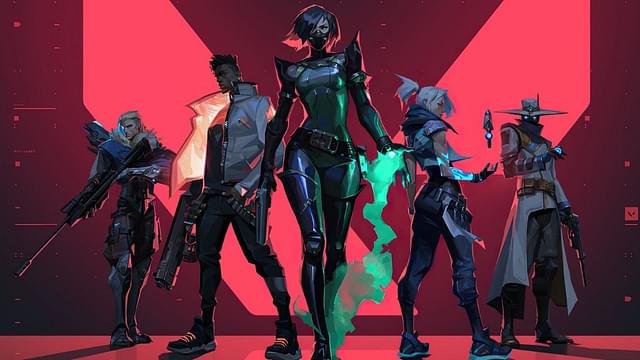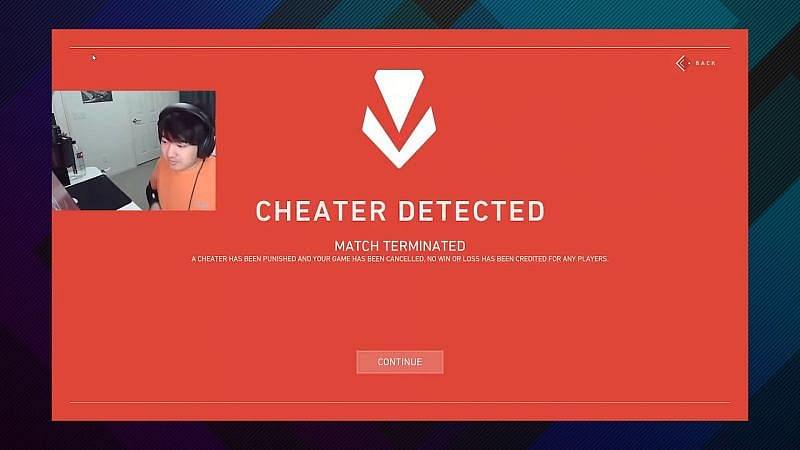The Vanguard anti-cheat technology that was extremely controversial last year is supposedly functioning quite well. Reports indicate that people reporting cheaters have been at an ‘all-time low’.
Valorant’s Vanguard anti-cheat technology proved deeply controversial when it was revealed last year. Players were unhappy about the fact that it loads at boot by default and lurks quietly in the background.
As a result, waiting and watching even when Valorant isn’t running. Riot made Vanguard more visible and easier to disable in response.
But the basic requirement remained: If you want to play Valorant, you’ve got to run Vanguard. Even if it meant rebooting your system?
Early-stage Vanguard was quite invasive in nature
A year and a half later, Riot’s strategy appears to be paying dividends. Riot anti-cheat analyst Matt “K3o” Paoletti said in an update posted today that the rate of reports for cheating in Valorant is the lowest they’ve ever been.
Combatting cheaters is “a continual arms race” that has seen an uptick in hardware-based cheats and “machine learning algorithms,” but Paoletti said Riot has so far been able to stay ahead of those efforts.
Our reigning, defending Anti-cheat Analyst @RiotK3o is back to cover competitive integrity, the state of cheating today, and the future of Vanguard. Read the full report: https://t.co/0l3mkA3Hnv pic.twitter.com/kP9mE0MaEp
— VALORANT (@PlayVALORANT) October 18, 2021
Also read: APAC LCQ: Japan and Korea were allotted two extra slots as China is out of APAC LCQ
What Riot promises to improve and the changes already visible because of their Anti-cheat technology?
Paoletti acknowledged that there are still, and always will be, cheaters in Valorant. But said that, Riot’s goal is to ensure “that cheating is never a viable way for long term competitive success in Valorant.”
To that end, developers will continue to develop Vanguard. They will take advantage of more general advances in cybersecurity.
Patches include “security upgrades in operating systems that enable us to better identify and prevent cheaters”—presumably a reference to the requirement for TPM (Trusted Platform Module 2.0) on Windows 11-based PCs.

Vanguard is also going to increase focus on players who use cheating accounts to boost other players. “Knowing that their account would get banned but the boosted would keep the ill-gotten gains,” Paoletti wrote.
Riot Games also mentioned, “We’ve created automated measures to take actions on the boosted account, and we’re still committing to those.”
As for the in-game perspective, it is difficult to tell if someone is really cheating. This is owing to the lag in replays and animations, as well as sluggishness in reviewing reports.
Vanguard Anti-cheat engine seems to be the leading horse in the pack right now
The effectiveness of Valorant’s Anti-Cheat can also be seen in more subtle ways. Activision recently announced that it’s launching a kernel-level anti-cheat for Call of Duty: Warzone.
It’s a testament to the overall effectiveness of the technology in itself. This time around players seem happy to embrace it (or at least, willing to put up with it) as long as it works.
I want kernel level anti cheat for siege. Valorant and CoD are doing it right.
— Lendezi (@lendezi) October 15, 2021
.@PlayVALORANT anti-cheat team member @RiotK3o confirmed that the first #VCT “went really well” and that the team reviewed professional players as early as the open qualifiers to maintain competitive integrity.
📰 Read more:https://t.co/D0v8wjYAkt
— Dot Esports (@DotEsports) October 19, 2021
Maybe, just maybe, this time it works as intended. Old warzone days were scary.
Also read: G2 Gozen Unveiled: G2 ESports signs an all-female Valorant team including CS:GO Star Juliano







